|
Kate Geroux has earned her Monarch Award 2019, having graduated up from the Caterpillar Award she received a few years ago: “that was a baby garden with donated plants.”
New to the Stoney Creek neighbourhood, Kate says, at the time, she had just heard about the awards and was getting to know the soil of her garden. “It was a blank slate, there was nothing there,” she recalls, “rocks, rubble, not even any grass.” The soil being mostly gravel and clay, Kate’s work was largely about improving it; applying peat moss and compost from the school she works at, as well as bringing in Red Wiggler worms to help break things down and applying topsoil. A slope garden, Kate was concerned about plants getting washed away with the rain. Her solution was to create a walking path with rocks from the beach and drainage with pebble stones.
3 Comments
Michael Albanese, Caterpillar Awards 2019, Recipient. The Caterpillar Awards of the Hamilton Monarch Awards recognize the efforts of beginner gardeners, people making small gardens or “first try” gardens, regardless of the property size and
people with small “postage stamp” properties. Michael Albanese’s garden is a rain garden, which is fitting since he is President of Avesi Stormwater and Landscape Solutions, where he helps people integrate rainwater into their landscapes. By using his front yard to showcase a rain garden, Michael hopes to raise awareness around rainwater management and see more rain gardens in the community. His involvement with rain gardens dates back to 2008 during his undergraduate education in Earth Systems Science at the University of Waterloo: “That is where I was introduced to the concept of stormwater management and how it impacts our freshwater resources.” As Michael points out residential sites are critical to watershed health: “I saw a real opportunity to help people use their landscapes for good – being a steward for the environment starts at home, it doesn’t have to be the responsibility of cities.” Kevin Wydysz is a 2019 recipient of the Caterpillar Awards, a program of the Hamilton Monarch Awards.
He tells us that it was a cousin of his who works with the Hamilton Conservation Authority that got him started on planting for nature. Together, they dug out his front lawn by hand. As well, we were thrilled to learn that our Pollinator Paradise garden at York Boulevard Parkette contributed to motivating Kevin: “It looked amazing, it really inspired me to get going.” Great news for Hamilton residents! The Hamilton Naturalists Club and Environment Hamilton, along with many other local conservation groups and city of Hamilton staff have been working throughout 2019 to begin the process for a made-in-Hamilton Biodiversity Action Plan. On February 19, a motion was passed at General Issues Committee to investigate the feasibility of developing such a plan. We are thrilled! Jen Baker (HNC Project Manager) delegated to the Committee on behalf of the team. Key highlighted messages in our presentation are the following:
Biological diversity is another name for nature. It is the diversity of all species--bacteria to birds, plants to people and their habitats. Hamilton lies within a Canadian biodiversity hotspot and we should be proud of this. Our range of habitats, including the Niagara Escarpment, Lake Ontario, coastal wetlands like Cootes Paradise, mature forests, that support many species and provide millions in ecosystem services each year. Nature has its own intrinsic value but humans also rely on biodiversity to survive. Nature provides many benefits to us such as managing flooding by storing water, significantly reducing air pollution by sequestering carbon, filtering out harmful air particulates, and cooling which reduces the harmful effects of heatwaves. It also provides beautiful green spaces that provide a refuge and that support the health and well-being of the community. Basically, biodiversity is the foundation for life and the healthier our biodiversity is, the better our quality of life. Any impacts to nature reduce the ecosystem benefits to our community. In 2019, The Monarch Awards “for gardens that nature loves, by gardeners who love nature,” received 33 Monarch Award applications. Field judges named five gardeners as recipients of these awards, previously a competition, now a standard of excellence. As well, seven Caterpillar Awards were given out to beginner gardeners and small gardens. Over the next few months, we will be sharing stories from award winners of both categories. Here’s our first story. The tree’s the thing.“Every change has a catalyst, something happens to make you rethink your point of view,” says Waterdown resident, Ann Martin about the genesis of her nature-supporting garden. “The loss of our Maple tree in the 2013 ice storm was mine.” Previously, Ann’s backyard was all shade but with the damaged tree downed, and the garden leveled to a clean slate, “suddenly, we had full sun.” With her husband, John, she decided that everything they would plant from then on had to feed somebody: “birds, bees, us.” Ann knew she wanted fruits; she put in peach, apples, asparagus, blueberries, raspberries, red and black currant bushes, with native species flower tucked in every inch of the space. She planted Echinacea and Joe-pye around the perimeter of the yard: “now we have gorgeous bees and butterflies, there’s so much life in my backyard.” Ann also put in two rain gardens and ripped up the front yard in preparation for this year’s garden. We asked Ann what has been the response from the neighbours thus far. “We have a lot of conversations, there’s been mostly positive feedback,” she responds, pointing out that people are looking for ways and things to do to help, because of climate change being front and centre. For Ann, knowing what and how to make change is part of a grassroots movement that covers anything from refilled jars to gardening for nature: “you can change where you are.”
Asked about specific challenges she faced in starting a nature-benefiting garden, Ann describes the actual sourcing of native plants as difficult. “I had to travel; lots of road trips, but lots of fun,” this energetic Personal Support Worker says. Ann hit every native plant sale, the first being the RBG sale; “I thought, okay, this I like.” As to support and resources that helped her on the way, Ann refers to the halton environmental talks on watersheds and native plants as being very motivating. She was also able to access a grant from the Hamilton Halton Watershed Stewardship Program towards establishing rain gardens. Micheal Albanese, with Avesi Storm Water, came out to help with the planning for the two water gardens in the front. Ann learned about other native plant nurseries in the area after ttending the first native plant sale at RBG. “Once you get your toe in the door, you find out more,” she says. About the Monarch Awards themselves, “I think a huge part of this is that it’s going to be changing the Trillium Awards, which is already happening, like how they are now allowing clover on lawns, that’s really positive,” Ann concludes. The Pollinator Paradise Project, (an initiative of the Hamilton Naturalists' Club and Environment Hamilton) has been going for 5 years. Are you curious about what this looks like at the end of 2019? Well here's a list of what we've been up to all this time:
We’ve updated our Pollinator Paradise Project Map that showcases pollinator habitats across the city. Over the summer, an incredible team of student volunteers assisted our staff in creating a better, more beautiful, more interactive story map. Since 2014, Environment Hamilton and the Hamilton Naturalists' Club have been building a Pollinator Paradise of certified gardens across the city to provide food and shelter for native pollinators. By doing this with our community, we are strengthening and enhancing Hamilton's unique biodiversity.
So what exactly qualifies a pollinator garden? The major requirement is native wildflowers - the primary source of food for our native pollinators!It is also great to provide habitats like wood, stems, leaves, and undisturbed soil. Another resource to provide is clean water. And these pollinator gardens come in many different shapes and sizes! From small residential gardens to large park spaces over 450 square metres, every pollinator garden helps. For Immediate Release: September 18, 2019
Hamilton--Everyone wants to help save the pollinators, and one of the best ways to do so is by planting a native species garden. To this end, the Hamilton Pollinator Paradise Project has launched the Plant Paradise Toolkit, a guide designed to help Hamiltonians create pollinator-friendly habitat. “Whether you are planting in a very small space such as a balcony, or on a large property, starting a garden for wild bees, butterflies, and other pollinators can seem overwhelming,” says Jen Baker, Project Manager for the Pollinator Paradise Project. “This electronic toolkit is useful for all habitat sizes and every level of expertise--from beginner to green thumb.” Plant Paradise Toolkit is divided into two parts. The first part starts with an introduction as to why pollinators need our help (and why we need theirs: 1 in every 3 bites of food we eat depends on a pollinator!). It includes a section that explains the urgency for supporting broader biodiversity in general. The second part of the toolkit is laid out in 6 neat sections. Illustrated with beautiful images, it covers choosing a site, designing the garden, choosing the plants for the garden, preparing, planting and maintaining the garden. “With this critical conservation issue, we can all be part of the solution; ” Baker concludes, “because every little bit helps.” Residents will be able to get a condensed version of the toolkit by attending the Cootes to Escarpment EcoPark System BioBlitz weekend, September 21-22 and/or the Native Plant Sale, which will run concurrently with the BioBlitz event on September 21, and takes place at the Royal Botanical Gardens.https://www.rbg.ca/bioblitz -30- The Hamilton Pollinator Paradise Project is an initiative of Environment Hamilton and the Hamilton Naturalists’ Club since 2014, with the goal of planting a Pollinator Paradise across the City of Hamilton. For more information or to arrange an interview, please contact: Jen Baker, Pollinator Paradise Project, land@hamiltonnature.org or call 905-549-0900 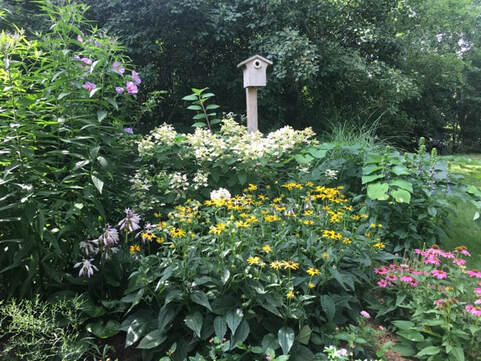 Tina's garden, Ancaster Tina's garden, Ancaster In reviewing the Monarch Awards' Applications for this year, 2019, we were struck by the love, care and respect for nature that the applicants showed as concerns their gardens. In all 33 applications, there was an authentic desire to support biodiversity in the city, with thoughtful comments like, "giving the birds a place to drink," "a place for pollinators to shelter," etc. Gardeners referred to wildlife as "friends," "visitors," and "other inhabitants." The gardens themselves were spoken about as being "peaceful," "places of enjoyment," "an oasis," "a hidden haven." As we await the final decision from the judges, take a moment to read some of the quotes that stood out from amongst the applicants. 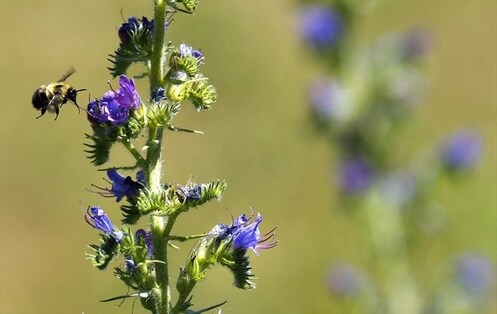 Published in thespec.com, June 11 2019 So you want to help save the bees? That's great, but first of all, you'll need to get to know your bees. From a conservation perspective, it's the wild bees as opposed to managed bees that we need to be focusing on. As plant pollinators, they are the ones that do most of the heavy lifting, yet they get the least attention. Dr. Sheila Colla, a conservation biologist at York University, states many people believe honeybees are wild bees. They are not. Honeybees are for honey production and pollination of some crops, they are not even native to North America. Sheila decries the lack of knowledge about native bees of which Ontario has over 350 species, most of them ground nesters, saying, "even the most avid naturalist groups don't know about the diversity of our wild bees." Why the confusion about the kinds of bees in need of our help? Many people became more concerned when beekeepers called for support to fight neonicotinoids (insecticides), "but they made it seem like this was the biggest threat, when in fact it is one of many," Sheila says. According to Sheila, pathogens from managed bees and diseases spillover are the biggest threat to wild bumblebees, the wild bees which are the best studied. "Disease tends to increase because we manage bees in densities higher than they would be found in nature." As an example, Sheila points to the bat population that contracted 'white nose syndrome.' "Over 90 per cent were impacted because when an animal is introduced to a disease they were never exposed to before, it can be catastrophic." Sheila argues that planting good quality habitat that provides both spring and fall flowers is one of the most significant things we can do. We need to beware of misconceptions — even the bee condo, while useful for education purposes is not so innocent a conservation tool. Research by Scott MacIvor's lab shows that bee condos are more parasitized, and fungus issues occur frequently. For Sheila, "it comes down to a western way of thinking that we can manage the environment and make it work the way we want to. This highlights to me it's one knowledge system we are still applying." |
Archives
December 2023
Categories |
|
|
Butterflyway Hamilton: www.facebook.com/butterflywayhamilton/
Environment Hamilton: https://www.environmenthamilton.org/ Hamilton Naturalists' Club: https://hamiltonnature.org/ |
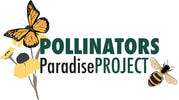
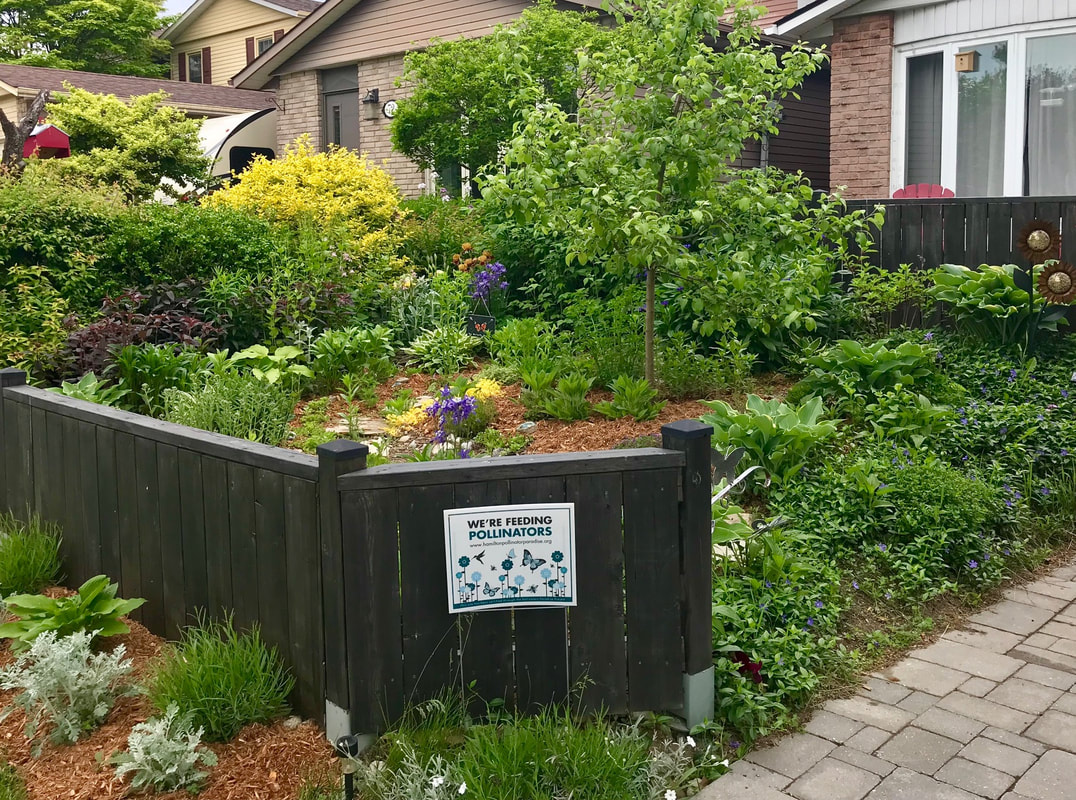
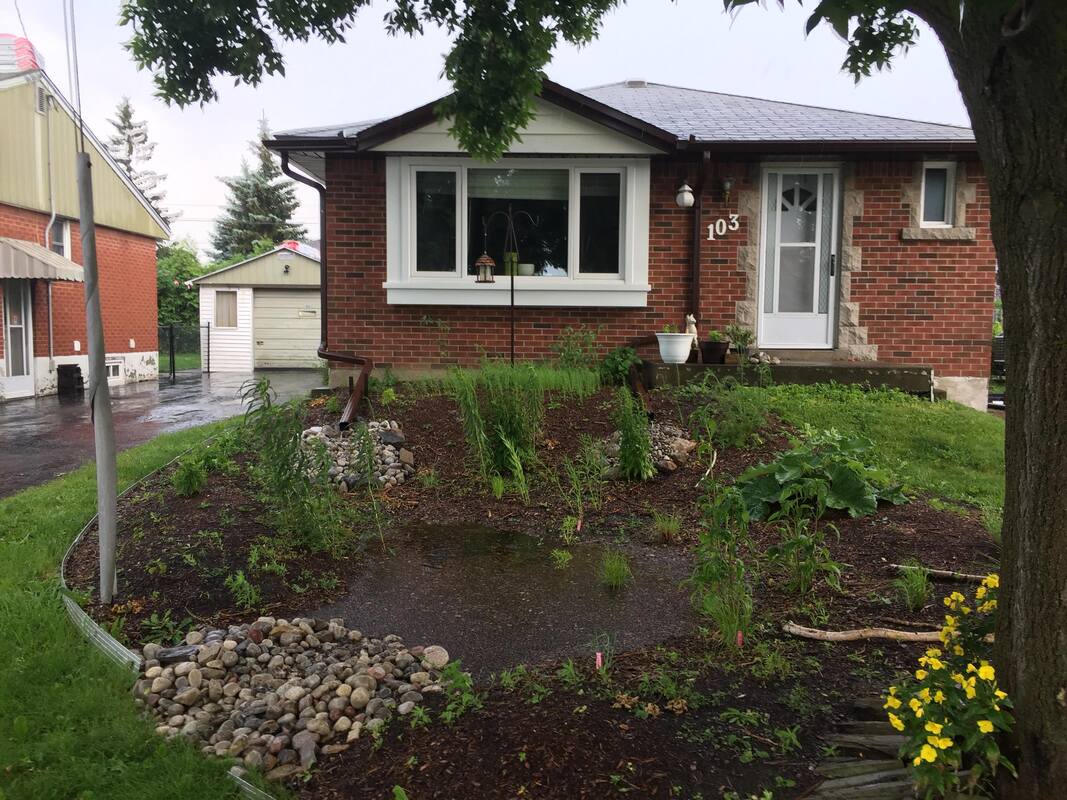
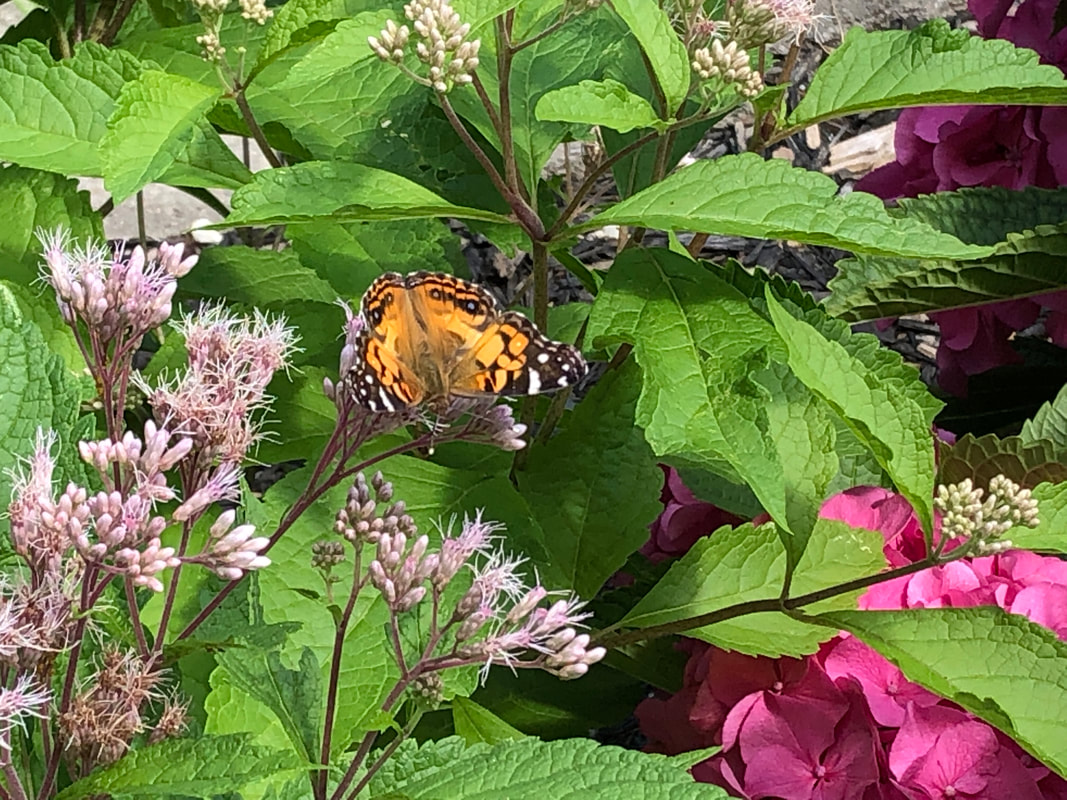
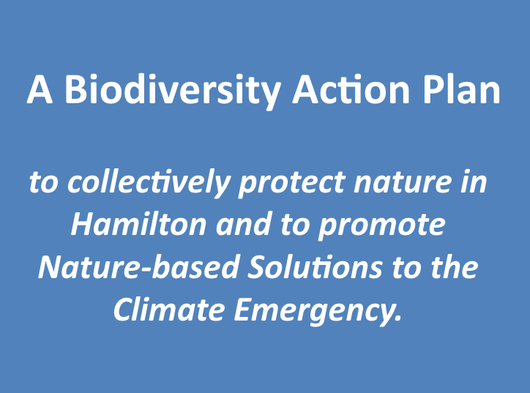
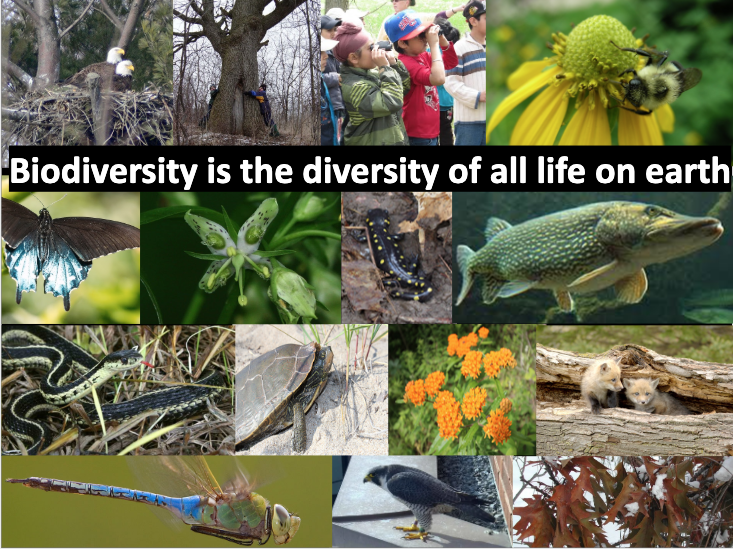



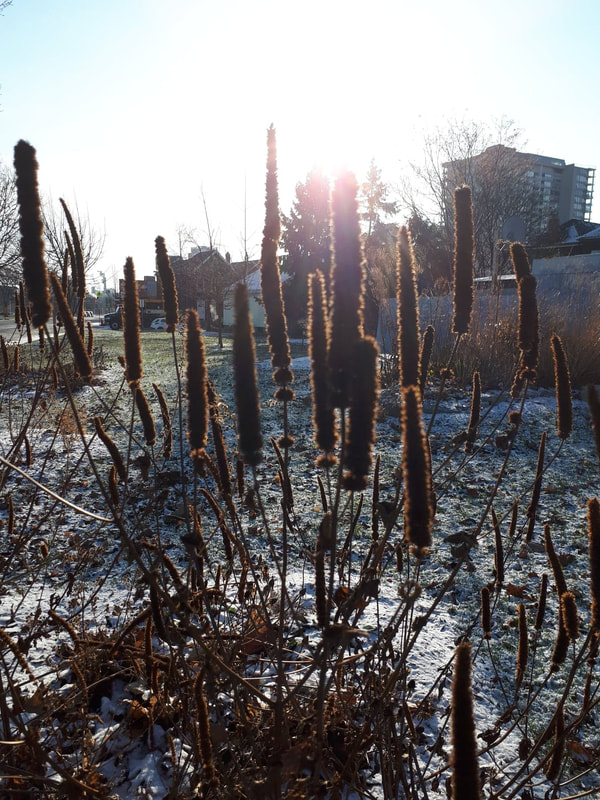
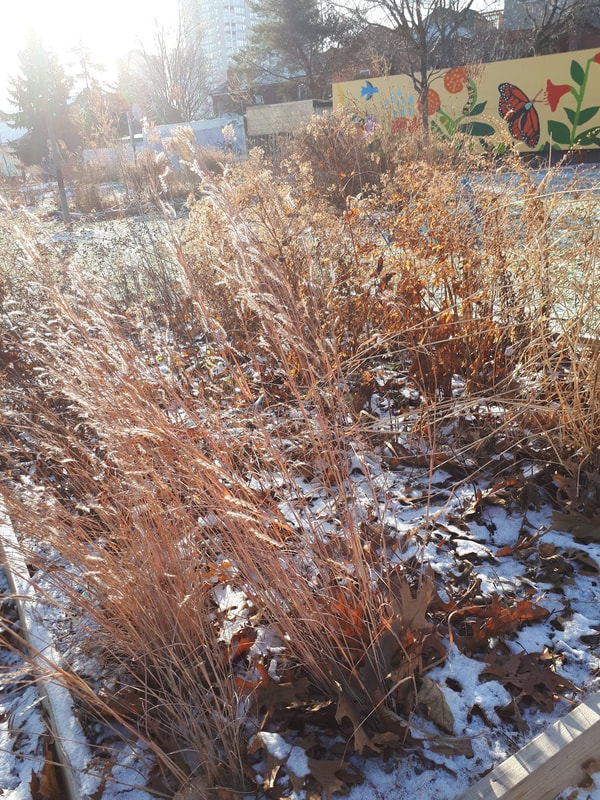
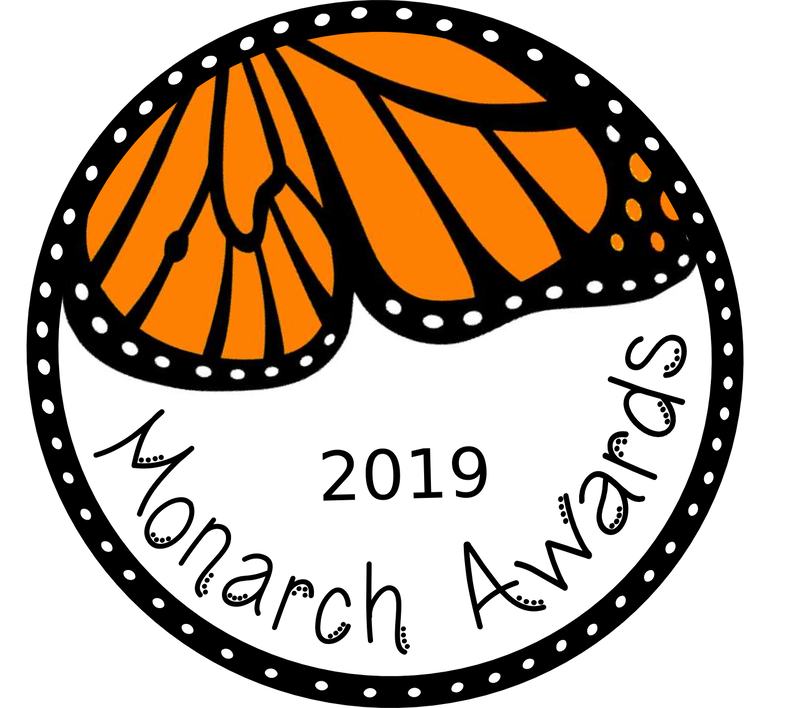
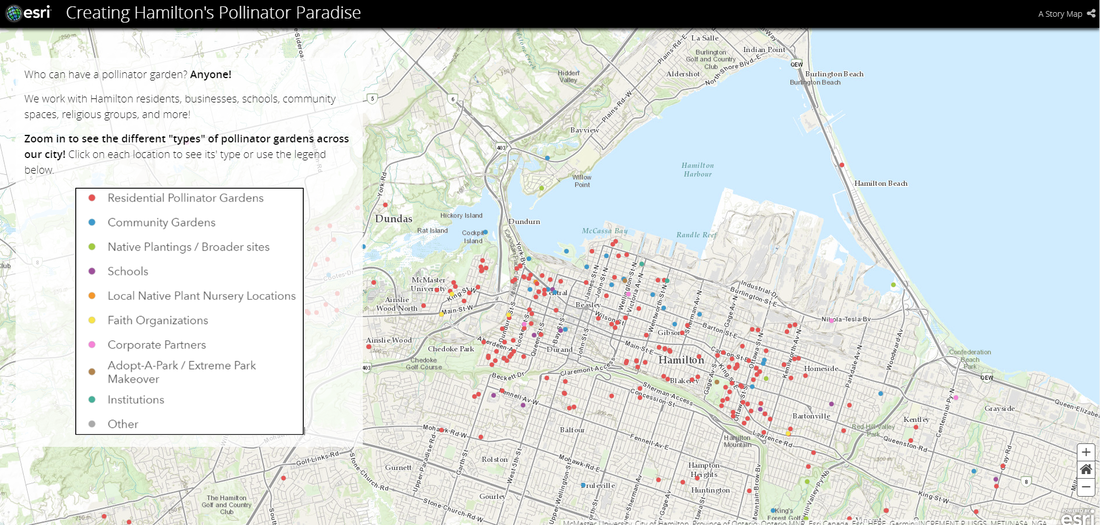
 RSS Feed
RSS Feed